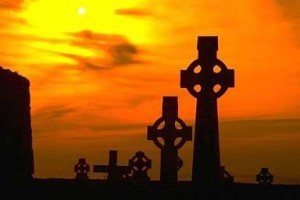Episode 5- The School of Prayer: Reflections on the teachings of Pope Benedict XVI –  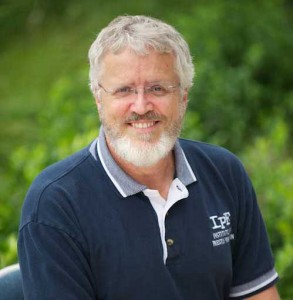 What is the authentic understanding of “intercession” in the context of prayer.  Moses speaks to God as friend.  The invisibility of God  puts deep questions in our hearts.  Unless we have the intimacy of relationship with God in our hearts, our fear will overwhelm our faith.  We also lose patience when waiting for God.  “Waiting” is a dangerous period for human beings; it is literally suffering for us.  The virtue of patience is the remedy.  “Waiting” causes us to run to other diversions…it happens in worship.  “Where are you”  “Are you real?” “Can I believe what is in the Word?” “Please help me.”  If we go deep into our hearts, the content of our waiting becomes the occasion for our intimacy.  But if we just feel the pain of waiting, we will go looking for lost gods.  It comes down to trust.  The role of our memory is so important. [powerpress] Deacon James Keating, PhD, the director of Theological Formation for the Institute for Priestly Formation, located at Creighton University, in Omaha. From  Pope Benedict’s 5 audience on prayer:
What is the authentic understanding of “intercession” in the context of prayer.  Moses speaks to God as friend.  The invisibility of God  puts deep questions in our hearts.  Unless we have the intimacy of relationship with God in our hearts, our fear will overwhelm our faith.  We also lose patience when waiting for God.  “Waiting” is a dangerous period for human beings; it is literally suffering for us.  The virtue of patience is the remedy.  “Waiting” causes us to run to other diversions…it happens in worship.  “Where are you”  “Are you real?” “Can I believe what is in the Word?” “Please help me.”  If we go deep into our hearts, the content of our waiting becomes the occasion for our intimacy.  But if we just feel the pain of waiting, we will go looking for lost gods.  It comes down to trust.  The role of our memory is so important. [powerpress] Deacon James Keating, PhD, the director of Theological Formation for the Institute for Priestly Formation, located at Creighton University, in Omaha. From  Pope Benedict’s 5 audience on prayer:
“Tired of following a path with a God who is invisible now that Moses the mediator has also gone, the people demand a tangible, palpable presence of the Lord and find an accessible god, within the reach of human beings, in Aaron’s molten metal calf. This is a constant temptation on the path of faith: avoiding the divine mystery by building a comprehensible god that corresponds to our own preconceptions and plansâ€.
 For more information on the “Institute of Priestly Formation†and for other material available by Deacon Keating, just click here
For more information on the “Institute of Priestly Formation†and for other material available by Deacon Keating, just click here 
Don’t forget to pickup a copy of “Communion with Christ†, it is one of the best audio sets on prayer…ever!
Check out Deacon Keating’s “Discerning Heart†page
Tags: catholic, catholic podcast, catholic prayer, cathollc spirituality, creighton university, institute for priestly formation, james keating, pope benedict, pope benedict xvi
This entry was posted on Monday, February 13th, 2012 at 10:58 am
You can follow any responses to this entry through the RSS 2.0 feed.
Episode 4- The School of Prayer: Reflections on the teachings of Pope Benedict XVI –   Jacob wrestling with Angel.  The mystery of the name.  We have to let God ask us who we are or will you resist and remain isolated?  Our prayer is only going to be fruitful if we surrender ourselves to the question…who are you?  Like  Jacob, once we give over our name then God can begin to transfigure that name, or in other words, our persons to be more inline with His will, His love, His power.  Eventually, in prayer, we have to enter into the struggle…what is really going on in our souls, in our hearts and are our wrestling with God’s love.   We yield our identity to God’s love.
Jacob wrestling with Angel.  The mystery of the name.  We have to let God ask us who we are or will you resist and remain isolated?  Our prayer is only going to be fruitful if we surrender ourselves to the question…who are you?  Like  Jacob, once we give over our name then God can begin to transfigure that name, or in other words, our persons to be more inline with His will, His love, His power.  Eventually, in prayer, we have to enter into the struggle…what is really going on in our souls, in our hearts and are our wrestling with God’s love.   We yield our identity to God’s love.
The wounding of Jacob by the Angel. Â It is the symbol of the wound, the opening of the self, which symbolizes an entryway to vulnerability…God is deeply affecting us. Â God’s love, concern, and fascination with us is how He enters into our being and “wounds” us. Â If we could “be still” and allow Him to love us, He becomes victorious within us.
The name we yield to God is our heart…the core of our being.  At Baptism, we give over our name, so we give the power over to God over us.  How the “wrestling occurs” and if we stay in it long enough God “wounds” us, into His hands we commend our “spirits”.  How does Jesus transform even this event?
[powerpress]
Deacon James Keating, PhD, the director of Theological Formation for the Institute for Priestly Formation, located at Creighton University, in Omaha.
From  Pope Benedict’s 4 audience on prayer:
Dear brothers and sisters, our entire lives are like this long night of struggle and prayer, spent in desiring and asking for God’s blessing, which cannot be grabbed or won through our own strength but must be received with humility from him as a gratuitous gift that ultimately allows us to recognize the Lord’s face. And when this happens, our entire reality changes; we receive a new name and God’s blessing. And, what is more: Jacob, who receives a new name, and becomes Israel, also gives a new name to the place where he wrestled with God, where he prayed; he renames it Penuel, which means: “The Face of Godâ€. With this name he recognizes that this place is filled with the Lord’s presence, making that land sacred and thus leaving a memorial of that mysterious encounter with God. Whoever allows himself to be blessed by God, who abandons himself to God, who permits himself to be transformed by God, renders a blessing to the world. May the Lord help us to fight the good fight of the faith (cf. 1 Tim 6:12; 2 Tim 4:7) and to ask, in prayer, for his blessing, that he may renew us in the expectation of beholding his Face. Thank you.
For more information on the “Institute of Priestly Formation†and for other material available by Deacon Keating, just click here
Don’t forget to pickup a copy of “Communion with Christ†, it is one of the best audio sets on prayer…ever!
Check out Deacon Keating’s “Discerning Heart†page
Tags: catholic, catholic podcast, catholic prayer, cathollc spirituality, jacob, james keating, pope benedict, pope benedict xvi, prayer
This entry was posted on Sunday, February 5th, 2012 at 2:12 pm
You can follow any responses to this entry through the RSS 2.0 feed.
Episode 3- The School of Prayer: Reflections on the teachings of Pope Benedict XVI –   Abraham the great Patriarch who prays in intercession for Sodom and Gomorrah.  The mystery of intercessory prayer and God’s great mercy.  When we persist in prayer, like Abraham, the more we come to know God and trust in His love for us.  How sin corrupts our capacity to receive God’s movement of protection and love.  How the sacrifice of Christ opens the door to the mystery.  If we can learn how to pray, then we learn how to be loved.  How do we pray for others?
Abraham the great Patriarch who prays in intercession for Sodom and Gomorrah.  The mystery of intercessory prayer and God’s great mercy.  When we persist in prayer, like Abraham, the more we come to know God and trust in His love for us.  How sin corrupts our capacity to receive God’s movement of protection and love.  How the sacrifice of Christ opens the door to the mystery.  If we can learn how to pray, then we learn how to be loved.  How do we pray for others?
[powerpress]
Deacon James Keating, PhD, the director of Theological Formation for the Institute for Priestly Formation, located at Creighton University, in Omaha.
From  Pope Benedict’s 3 audience on prayer:
This is the power of prayer. For through intercession, the prayer to God for the salvation of others, the desire for salvation which God nourishes for sinful man is demonstrated and expressed. Evil, in fact, cannot be accepted, it must be identified and destroyed through punishment: The destruction of Sodom had exactly this function.
For more information on the “Institute of Priestly Formation†and for other material available by Deacon Keating, just click here
Don’t forget to pickup a copy of “Communion with Christ†, it is one of the best audio sets on prayer…ever!
Check out Deacon Keating’s “Discerning Heart†page
Tags: catholic, catholic podcast, catholic prayer, cathollc spirituality, james keating, pope benedict, pope benedict xvi
This entry was posted on Monday, January 30th, 2012 at 8:47 am
You can follow any responses to this entry through the RSS 2.0 feed.
Episode 2 – The School of Prayer: Reflections on the teachings of Pope Benedict XVI –   Faith and reason in the life of prayer.  Allowing God to effect our minds, as well as our hearts.  If you let God close you will be free…to let him in so close that God prays in you.  Letting God’s love be the norm of our culture…in the other and in the poor.  The role of silence in prayer and posture of kneeling.
Faith and reason in the life of prayer. Â Allowing God to effect our minds, as well as our hearts. Â If you let God close you will be free…to let him in so close that God prays in you. Â Letting God’s love be the norm of our culture…in the other and in the poor. Â The role of silence in prayer and posture of kneeling.
[powerpress]
Deacon James Keating, PhD, the director of Theological Formation for the Institute for Priestly Formation, located at Creighton University, in Omaha.
From  Pope Benedict’s 2nd audience on prayer:
A look at recent history reveals the failure of the predictions of those who, in the age of the Enlightenment, foretold the disappearance of religions and who exalted absolute reason, detached from faith, a reason that was to dispel the shadows of religious dogmatism and was to dissolve the “world of the sacredâ€, restoring to the human being freedom, dignity and autonomy from God. The experience of the past century, with the tragedy of the two World Wars, disrupted the progress that autonomous reason, man without God, seemed to have been able to guarantee.
The Catechism of the Catholic Church says: “In the act of creation, God calls every being from nothingness into existence…. Even after losing through his sin his likeness to God, man remains an image of his Creator, and retains the desire for the one who calls him into existence. All religions bear witness to man’s essential search for Godâ€Â (n. 2566). We could say — as I explained in my last Catecheses — that there has been no great civilization, from the most distant epoch to our day, which has not been religious.
For more information on the “Institute of Priestly Formation†and for other material available by Deacon Keating, just click here
Don’t forget to pickup a copy of “Communion with Christ†, it is one of the best audio sets on prayer…ever!
Check out Deacon Keating’s “Discerning Heart†page
Tags: catholic, catholic podcast, catholic prayer, cathollc spirituality, james keating, pope benedict, pope benedict xvi
This entry was posted on Thursday, January 19th, 2012 at 10:34 pm
You can follow any responses to this entry through the RSS 2.0 feed.
Episode 1 – The School of Prayer: Reflections on the teachings of Pope Benedict XVI –    “Life without prayer has no meaning or points of reference”.  The relationship between the Father and the Son and the Holy Spirit  is so essential to our understanding of prayer.  The meaning of the Church.  Suffering the coming of the Holy Spirit.  Jesus is the face of God.  Do not be afraid, He will teach you happiness.
 “Life without prayer has no meaning or points of reference”.  The relationship between the Father and the Son and the Holy Spirit  is so essential to our understanding of prayer.  The meaning of the Church.  Suffering the coming of the Holy Spirit.  Jesus is the face of God.  Do not be afraid, He will teach you happiness.
[powerpress]
Deacon James Keating, PhD, the director of Theological Formation for the Institute for Priestly Formation, located at Creighton University, in Omaha.
From  Pope Benedict’s 1st audience on prayer:
Human life is a fabric woven of good and of evil, of undeserved suffering and of joy and beauty that spontaneously and irresistibly impel us to ask God for that light and that inner strength which support us on earth and reveal a hope beyond the boundaries of death.
In the examples of prayer of the various cultures which we have considered, we can see a testimony of the religious dimension and of the desire for God engraved on the heart of every human being, which receives fulfilment and full expression in the Old and in the New Testament. The Revelation, is in fact purifying and brings to its fullness man’s original yearning for God, offering to him, in prayer, the possibility of a deeper relationship with the heavenly Father.
At the beginning of our journey in the “school of prayer†let us now ask the Lord to illumine our minds and hearts so that the relationship with him in prayer may be ever more intense, affectionate and constant. Once again, let us say to him: “Lord, teach us to pray†(Lk 11:1).
For more information on the “Institute of Priestly Formation†and for other material available by Deacon Keating, just click here
Don’t forget to pickup a copy of “Communion with Christ†, it is one of the best audio sets on prayer…ever!
Check out Deacon Keating’s “Discerning Heart†page
Tags: catholic, catholic podcast, catholic prayer, cathollc spirituality, james keating, pope benedict, pope benedict xvi
This entry was posted on Thursday, January 12th, 2012 at 11:11 am
You can follow any responses to this entry through the RSS 2.0 feed.
Episode 8 – Communion with Christ – Practical Prayer – The “wellsprings”   where Christ awaits us.  Responding at the moment when the subtle interior movements of the Holy Spirit calls to us.  The Word of God becomes a place of encounter. The danger of  Scripture  becoming all academic. People are converted when the Word approaches them as living.  The liturgy is also a place of encounter.  The heart as an “altar” in the liturgy.
 where Christ awaits us.  Responding at the moment when the subtle interior movements of the Holy Spirit calls to us.  The Word of God becomes a place of encounter. The danger of  Scripture  becoming all academic. People are converted when the Word approaches them as living.  The liturgy is also a place of encounter.  The heart as an “altar” in the liturgy.
[powerpress]
Deacon James Keating, PhD, the director of Theological Formation for the Institute for Priestly Formation, located at Creighton University, in Omaha.
 From the Catechism of the Catholic Church paragraph 2652 and 2655
From the Catechism of the Catholic Church paragraph 2652 and 2655
2652 The Holy Spirit is the living water “welling up to eternal life”3Â in the heart that prays. It is he who teaches us to accept it at its source: Christ. Indeed in the Christian life there are several wellsprings where Christ awaits us to enable us to drink of the Holy Spirit.
2655 In the sacramental liturgy of the Church, the mission of Christ and of the Holy Spirit proclaims, makes present, and communicates the mystery of salvation, which is continued in the heart that prays. the spiritual writers sometimes compare the heart to an altar. Prayer internalizes and assimilates the liturgy during and after its celebration. Even when it is lived out “in secret,”6Â prayer is always prayer of the Church; it is a communion with the Holy Trinity.7
For more information on the “Institute of Priestly Formation†and for other material available by Deacon Keating, just click here
Don’t forget to pickup a copy of “Communion with Christ†, it is one of the best audio sets on prayer…ever!
Check out Deacon Keating’s “Discerning Heart†page
Tags: catholic, catholic podcast, catholic prayer, cathollc spirituality, creighton university, institute for priestly formation, liturgy, mass, prayer, scripture
This entry was posted on Thursday, December 22nd, 2011 at 7:36 am
You can follow any responses to this entry through the RSS 2.0 feed.
Episode 7 – Communion with Christ – Practical Prayer –  The will to pray.  To listen, to search, to see Him…to become prayer ourselves.  You know are progressing by the fruit of your life.  The parish as the “school of prayer”  The pastor as teacher of prayer, the spiritual father.  The disordered demands we may place on the priest.  What is the remedy?
The will to pray. Â To listen, to search, to see Him…to become prayer ourselves. Â You know are progressing by the fruit of your life. Â The parish as the “school of prayer” Â The pastor as teacher of prayer, the spiritual father. Â The disordered demands we may place on the priest. Â What is the remedy?
[powerpress]
Deacon James Keating, PhD, the director of Theological Formation for the Institute for Priestly Formation, located at Creighton University, in Omaha.
 From the Catechism of the Catholic Church paragraph 2650and 2651
From the Catechism of the Catholic Church paragraph 2650and 2651
2650 Prayer cannot be reduced to the spontaneous outpouring of interior impulse: in order to pray, one must have the will to pray. Nor is it enough to know what the Scriptures reveal about prayer: one must also learn how to pray. Through a living transmission (Sacred Tradition) within “the believing and praying Church,”1Â The Holy Spirit teaches the children of God how to pray.
2651 The tradition of Christian prayer is one of the ways in which the tradition of faith takes shape and grows, especially through the contemplation and study of believers who treasure in their hearts the events and words of the economy of salvation, and through their profound grasp of the spiritual realities they experience.2
For more information on the “Institute of Priestly Formation†and for other material available by Deacon Keating, just click here
Don’t forget to pickup a copy of “Communion with Christ†, it is one of the best audio sets on prayer…ever!
Check out Deacon Keating’s “Discerning Heart†page
Tags: catholic, catholic podcast, catholic prayer, cathollc spirituality, creighton university, Deacon Keating, institute for priestly formation, james keating, theological formation
This entry was posted on Saturday, December 17th, 2011 at 8:43 am
You can follow any responses to this entry through the RSS 2.0 feed.
Episode 6- Communion with Christ – Practical Prayer –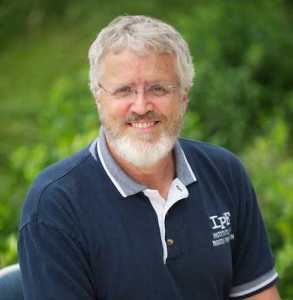 How we receive prayer.  The reception of grace and the great gift of memory. “Ask…seek…knock “.  Through prayer, heaven begins. Prayer is a battle…it isn’t easy.  Western culture is a “culture of distraction”.  We need to receive the coming of God when it enlights upon us.
How we receive prayer.  The reception of grace and the great gift of memory. “Ask…seek…knock “.  Through prayer, heaven begins. Prayer is a battle…it isn’t easy.  Western culture is a “culture of distraction”.  We need to receive the coming of God when it enlights upon us.
[powerpress]
Deacon James Keating, PhD, the director of Theological Formation for the Institute for Priestly Formation, located at Creighton University, in Omaha.
 From the Catechism of the Catholic Church paragraph 2610and 2611
From the Catechism of the Catholic Church paragraph 2610and 2611
2610 Just as Jesus prays to the Father and gives thanks before receiving his gifts, so he teaches us filial boldness: “Whatever you ask in prayer, believe that you receive it, and you will.”66Â Such is the power of prayer and of faith that does not doubt: “all things are possible to him who believes.”67Â Jesus is as saddened by the “lack of faith” of his own neighbors and the “little faith” of his own disciples68Â as he is struck with admiration at the great faith of the Roman centurion and the Canaanite woman.69
2611 The prayer of faith consists not only in saying “Lord, Lord,” but in disposing the heart to do the will of the Father.70Â Jesus calls his disciples to bring into their prayer this concern for cooperating with the divine plan.71
2612 In Jesus “the Kingdom of God is at hand.”72Â He calls his hearers to conversion and faith, but also to watchfulness. In prayer the disciple keeps watch, attentive to Him Who Is and Him Who Comes, in memory of his first coming in the lowliness of the flesh, and in the hope of his second coming in glory.73Â In communion with their Master, the disciples’ prayer is a battle; only by keeping watch in prayer can one avoid falling into temptation.74
For more information on the “Institute of Priestly Formation†and for other material available by Deacon Keating, just click here
Don’t forget to pickup a copy of “Communion with Christ†, it is one of the best audio sets on prayer…ever!
Check out Deacon Keating’s “Discerning Heart†page
Tags: catholic, catholic podcast, catholic prayer, cathollc spirituality, creighton university, Deacon James Keating, Deacon Keating, institute for priestly formation, institute of priestly formation, james keating, prayer, theological formation
This entry was posted on Saturday, December 10th, 2011 at 1:43 am
You can follow any responses to this entry through the RSS 2.0 feed.
Episode 5- Communion with Christ – Practical Prayer –  ” How did I ever live without prayer?” 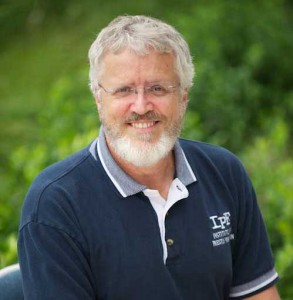  A sustained communion with Christ is the beginning of heaven.  “Ask..seek…knock”.  Are you knocking to receive a relationship or are you knocking to get more stuff?  Are you seeking to surrender and entrust or are you seeking to satisfy more of a passing  desire or mood?  Even in our coming to prayer Jesus wants to purify our motive for doing so.  The challenge of entering into deep prayer which leads to the great maturity of prayer.
 A sustained communion with Christ is the beginning of heaven.  “Ask..seek…knock”.  Are you knocking to receive a relationship or are you knocking to get more stuff?  Are you seeking to surrender and entrust or are you seeking to satisfy more of a passing  desire or mood?  Even in our coming to prayer Jesus wants to purify our motive for doing so.  The challenge of entering into deep prayer which leads to the great maturity of prayer.
[powerpress]
Deacon James Keating, PhD, the director of Theological Formation for the Institute for Priestly Formation, located at Creighton University, in Omaha.
 From the Catechism of the Catholic Church paragraph 2608 and 2609
From the Catechism of the Catholic Church paragraph 2608 and 2609
2608 From the Sermon on the Mount onwards, Jesus insists on conversion of heart: reconciliation with one’s brother before presenting an offering on the altar, love of enemies, and prayer for persecutors, prayer to the Father in secret, not heaping up empty phrases, prayerful forgiveness from the depths of the heart, purity of heart, and seeking the Kingdom before all else.64Â This filial conversion is entirely directed to the Father.
2609 Once committed to conversion, the heart learns to pray in faith. Faith is a filial adherence to God beyond what we feel and understand. It is possible because the beloved Son gives us access to the Father. He can ask us to “seek” and to “knock,” since he himself is the door and the way.65
For more information on the “Institute of Priestly Formation†and for other material available by Deacon Keating, just click here
Don’t forget to pickup a copy of “Communion with Christ†, it is one of the best audio sets on prayer…ever!
Check out Deacon Keating’s “Discerning Heart†page
Tags: catholic, catholic podcast, catholic prayer, cathollc spirituality, creighton university, Deacon Keating, institute for priestly formation, james keating, prayer, prayer Jesus, theological formation
This entry was posted on Thursday, December 1st, 2011 at 6:29 am
You can follow any responses to this entry through the RSS 2.0 feed.
Episode 4- Communion with Christ – Practical Prayer –  Continued reflections on the last things said by Jesus on the Cross.   Mary as teacher of prayer…the wellspring of interiority, because she held all the mysteries in her heart. “I Thirst”….God’s longing for us.  Allowing God to pray in us.  “My God, My God, why have you forsaken me”…is it more that we have abandoned God?  Sin looks like crucifixion.  The final words.
 Mary as teacher of prayer…the wellspring of interiority, because she held all the mysteries in her heart. “I Thirst”….God’s longing for us.  Allowing God to pray in us.  “My God, My God, why have you forsaken me”…is it more that we have abandoned God?  Sin looks like crucifixion.  The final words.
[powerpress]
Deacon James Keating, PhD, the director of Theological Formation for the Institute for Priestly Formation, located at Creighton University, in Omaha.
 From the Catechism of the Catholic Church paragraph 2605
From the Catechism of the Catholic Church paragraph 2605
When the hour had come for him to fulfill the Father’s plan of love, Jesus allows a glimpse of the boundless depth of his filial prayer, not only before he freely delivered himself up (“Abba . . . not my will, but yours.”),53but even in his last words on the Cross, where prayer and the gift of self are but one: “Father, forgive them, for they know not what they do”,54 “Truly, I say to you, today you will be with me in Paradise”,55 “Woman, behold your son” – “Behold your mother”,56 “I thirst.”;57 “My God, My God, why have you forsaken me?”58 “It is finished”;59 “Father, into your hands I commit my spirit!”60 until the “loud cry” as he expires, giving up his spirit.61
For more information on the “Institute of Priestly Formation†and for other material available by Deacon Keating, just click here
Don’t forget to pickup a copy of “Communion with Christ†, it is one of the best audio sets on prayer…ever!
Check out Deacon Keating’s “Discerning Heart†page
Tags: catholic, catholic podcast, catholic prayer, cathollc spirituality, Deacon James Keating, Deacon Keating, institute for priestly formation, prayer, theological formation
This entry was posted on Saturday, November 19th, 2011 at 7:43 pm
You can follow any responses to this entry through the RSS 2.0 feed.
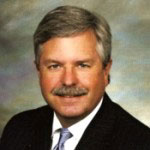 The celebration of the life of Deacon Robert Jergovic took place on a cool November Monday morning…the Church was packed, the tears flowed, and one of the best homilies that I’ve ever heard was given by his close friend Deacon James Keating.  Poignant, compelling, a heartbreakenly beautiful tribute to a life which shined with the presence of Christ.  “For whom shall I offer my suffering” was one of the last questions Deacon Rob asked his friend.  The first act of a dying man was to think of another…and then another astonishment occurred.  Don’t miss the rest of the story. [powerpress]
The celebration of the life of Deacon Robert Jergovic took place on a cool November Monday morning…the Church was packed, the tears flowed, and one of the best homilies that I’ve ever heard was given by his close friend Deacon James Keating.  Poignant, compelling, a heartbreakenly beautiful tribute to a life which shined with the presence of Christ.  “For whom shall I offer my suffering” was one of the last questions Deacon Rob asked his friend.  The first act of a dying man was to think of another…and then another astonishment occurred.  Don’t miss the rest of the story. [powerpress]
We pray for his wife, Lisa, and for his children…and we pray for Rob…who now prays for us at the throne of God. Â Praise to you, Lord Jesus Christ.
see also Omar’s remarks “When a Good Man Passes”
Tags: catholic, catholic podcast, catholic prayer, cathollc spirituality, deacon, Deacon James Keating, Deacon Robert Jergovic, james keating, Robert Jergovic
This entry was posted on Tuesday, November 15th, 2011 at 2:13 pm
You can follow any responses to this entry through the RSS 2.0 feed.
Episode 3- Communion with Christ – Practical Prayer –  Jesus is the primary teacher of prayer.   How can we pray “always”?  How do we become “prayer”?  Jesus was so conscious that all things flows from the Father, and teaches a rise in gratitude to the source of “all things”…and He teaches us how to pray to the Father.  Praying in the name of Jesus and the “receiving” of God in our hearts.
 How can we pray “always”?  How do we become “prayer”?  Jesus was so conscious that all things flows from the Father, and teaches a rise in gratitude to the source of “all things”…and He teaches us how to pray to the Father.  Praying in the name of Jesus and the “receiving” of God in our hearts.
[powerpress]
Deacon James Keating, PhD, the director of Theological Formation for the Institute for Priestly Formation, located at Creighton University, in Omaha.
 From the Catechism of the Catholic Church paragraph 2604
From the Catechism of the Catholic Church paragraph 2604
The second prayer, before the raising of Lazarus, is recorded by St. John.50Â Thanksgiving precedes the event: “Father, I thank you for having heard me,” which implies that the Father always hears his petitions. Jesus immediately adds: “I know that you always hear me,” which implies that Jesus, on his part, constantly made such petitions. Jesus’ prayer, characterized by thanksgiving, reveals to us how to ask: before the gift is given, Jesus commits himself to the One who in giving gives himself. the Giver is more precious than the gift; he is the “treasure”; in him abides his Son’s heart; the gift is given “as well.”51
For more information on the “Institute of Priestly Formation†and for other material available by Deacon Keating, just click here
Don’t forget to pickup a copy of “Communion with Christ†, it is one of the best audio sets on prayer…ever!
Check out Deacon Keating’s “Discerning Heart†page
Tags: catholic, catholic podcast, catholic prayer, cathollc spirituality, creighton university, Deacon Keating, institute for priestly formation, james keating, theological formation
This entry was posted on Friday, November 11th, 2011 at 7:04 am
You can follow any responses to this entry through the RSS 2.0 feed.
Episode 2-Communion with Christ – Practical Prayer –  We have lost are fear of going astray  and being unfaithful within.  We must be aware of the spirits, personal or impersonal, that can get into us.  We can get tangled up in many different  influences in prayer.  That is why it so important to have a director, a guide,  to help us navigate in this journey and to test those spirits.  Jesus is the model of prayer.  “He learns to pray from His mother”. (see below).   The witness of the community.  His prayer springs from a secret source and He wishes to share it with us.  All prayer is foretaste of heaven.
and being unfaithful within.  We must be aware of the spirits, personal or impersonal, that can get into us.  We can get tangled up in many different  influences in prayer.  That is why it so important to have a director, a guide,  to help us navigate in this journey and to test those spirits.  Jesus is the model of prayer.  “He learns to pray from His mother”. (see below).   The witness of the community.  His prayer springs from a secret source and He wishes to share it with us.  All prayer is foretaste of heaven.
[powerpress]
Deacon James Keating, PhD, the director of Theological Formation for the Institute for Priestly Formation, located at Creighton University, in Omaha.
 From the Catechism of the Catholic Church paragraph 2599
From the Catechism of the Catholic Church paragraph 2599
The Son of God who became Son of the Virgin learned to pray in his human heart. He learns to pray from his mother, who kept all the great things the Almighty had done and treasured them in her heart.41Â He learns to pray in the words and rhythms of the prayer of his people, in the synagogue at Nazareth and the Temple at Jerusalem. But his prayer springs from an otherwise secret source, as he intimates at the age of twelve: “I must be in my Father’s house.”42Â Here the newness of prayer in the fullness of time begins to be revealed: his filial prayer, which the Father awaits from his children, is finally going to be lived out by the only Son in his humanity, with and for men.
For more information on the “Institute of Priestly Formation†and for other material available by Deacon Keating, just click here
Don’t forget to pickup a copy of “Communion with Christ†, it is one of the best audio sets on prayer…ever!
Check out Deacon Keating’s “Discerning Heart†page
Tags: catholic, catholic podcast, catholic prayer, cathollc spirituality, Deacon James Keating, Deacon Keating, james keating, prayer, theological formation
This entry was posted on Thursday, November 3rd, 2011 at 11:20 am
You can follow any responses to this entry through the RSS 2.0 feed.
OK, First…Purgatory, it’s a good thing. While no one knows exactly (though various mystics have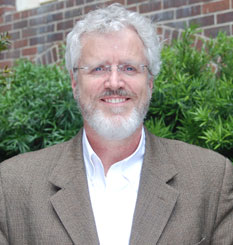 attempted to convey what they experienced by way of their prayer) what will happen there, we do know that if we end up in Purgatory we should be extremely happy since we are most definitely headed for heaven. No one in Purgatory is sent to hell (Yeah!).
attempted to convey what they experienced by way of their prayer) what will happen there, we do know that if we end up in Purgatory we should be extremely happy since we are most definitely headed for heaven. No one in Purgatory is sent to hell (Yeah!).
[powerpress]
First Stop in this exploration is to listen to Deacon James Keating of Institute for Priestly Foramtion with one of the best discussions Bruce and I ever had on the Poor Souls and Purgatory.
So what about praying for the Dead and what does the Church say about the Poor Souls?
What is Purgatory?
The Catechism of the Catholic Church defines Purgatory as follows:
1031 The Church gives the name Purgatory to this final purification of the elect, which is entirely different from the punishment of the damned. The Church formulated her doctrine of faith on Purgatory especially at the Councils of Florence and Trent. The tradition of the Church, by reference to certain texts of Scripture, speaks of a cleansing fire: As for certain lesser faults, we must believe that, before the Final Judgment, there is a purifying fire. He who is truth says that whoever utters blasphemy against the Holy Spirit will be pardoned neither in this age nor in the age to come. From this sentence we understand that certain offenses can be forgiven in this age, but certain others in the age to come (St. Gregory the Great, Dial. 4,39:PL 77,396; cf. Mt 12:31)..
.
.A “final purification” , hmm, sounds like suffering to me, The kind of interior suffering where we have to deal with the painful results of sin inflicted on us by others, but we also with the pain we have inflicted on others…and boy does that hurt. But in this “final purification” (it means just that…final) final healing occurs…an eternal, forever and forever amen, type of healing so we can be  “happy with God forever in Heaven” (to paraphrase the Baltimore Catechism).
The gift of this life here and now on earth is that we can enter into that “purification” now, so that when that moment comes (which we call…death), we can go right to the “pearly gates” and to heaven 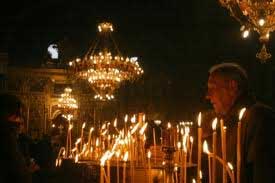 OR we can go to Purgatory to get cleaned up for the beatific vision. St. Teresa of Avila exhorts us to (to paraphrase again) “DO IT NOW, DON’T WAIT”. OK, here are accurate quotes:
OR we can go to Purgatory to get cleaned up for the beatific vision. St. Teresa of Avila exhorts us to (to paraphrase again) “DO IT NOW, DON’T WAIT”. OK, here are accurate quotes:
FROM HOLY SCRIPTURE
There are clear references to Purgatory in both the the Old and the New Testaments. In the Old Testament in 2 Machabees X11 43,46 the Jewish practice of praying for the dead is clearly set out it the following words – ‘It is therefore a holy and wholesome thought to pray for the dead that they may he loosed from their sins.
In the New Testament Our Blessed Lord in Matthew V 26 refers to the prison from which no one is released before his debts are repaid to the last farthing. St. Paul in Cor. 1,3 15 mentions that there are souls who can only be saved ‘yet so as by fire’. It is also stated in Apocalypse XXI, 27 in reference to heaven – ‘There shall in no way enter into it anything defiled”. St. Augustine says that these words clearly indicate that there must be forgiveness of some sins in the world to come, which cannot be in heaven as nothing defiled shall enter therein. Therefore Our Blessed Lord is clearly referring to a place which is neither heaven nor hell and which we call Purgatory.
The learned Protestant, Dr. Jeremy Taylor, writes thus about this matter. ‘We find by the history of the Machabees, that the Jews did pray and make offerings for the dead which appears by other testimonies, and by their form of prayer, still extant, which they used in the captivity. Now it is very considerable that since Our Blessed Saviour did reprove all the evil doctrines of the Scribes and Pharisees, and did argue concerning the dead and the resurrection, yet he spoke no word against this 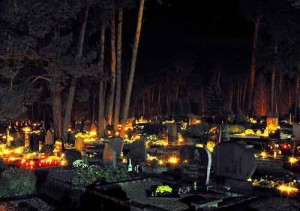 public practice but left it as he found it which he who came to declare to us all the will of His Father, would not have done, if it had not been innocent, pious and full of charity. The practice of it was at first, and was universal; it being plain in TertulIian and St. Cyprian.”
public practice but left it as he found it which he who came to declare to us all the will of His Father, would not have done, if it had not been innocent, pious and full of charity. The practice of it was at first, and was universal; it being plain in TertulIian and St. Cyprian.”
FROM THE FATHERS OF THE CHURCH
“We pray for all among us who are departed believing that this will be the greatest relief for them while the holy and tremendous victim lies present ” – St. Cyril Of Jerusalem
“We make yearly offerings for the dead” – Tertullian
“….. by long punishment for sin to be cleansed a long time by fire and to have purges away all sin by suffering” – St. Cyprian.
‘That you purify me in this life and render me such that 1 may not stand in need of that purging fire” – St. Augustine.
‘No day shall pass you over in silence, no prayer of mine shall ever be closed without remembering you. No night shall pass you over without some vows of my supplications. You shall have share in all my sacrifices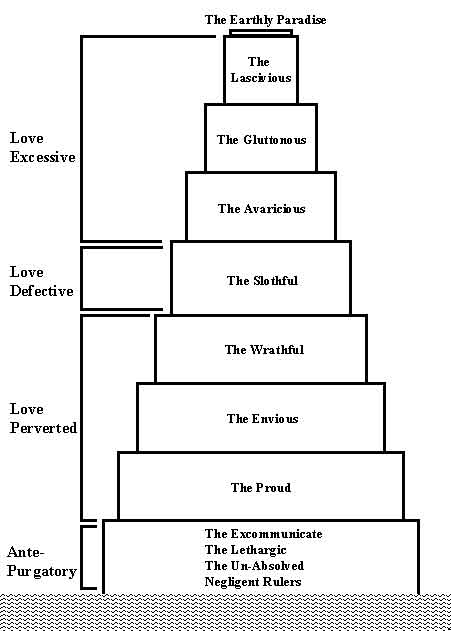 . If I forget you (now that you are dead) let my own right hand be forgotten” – St. Ambrose.
. If I forget you (now that you are dead) let my own right hand be forgotten” – St. Ambrose.
St. Chrysostom in his eighth homily on the Phillipians says that to pray for the faithful departed in the Mass was decreed by the Apostles themselves.
St. Clement of Alexandria says that by punishment after death men must expiate every least sin before they can enter heaven.
Origen in many places and Lactantius teach at large that all souls are purged by the punishment of fire before they enter heaven unless they are so pure as not to stand in need of it.
St. Epiphanius, St. Ephrem, St. Athanasius, Eusebius, St. Paulinus all teach the same.
FROM THE GREAT SAINTS
“No tongue can express, no mind can understand, how dreadful is Purgatory…And be assured that the souls have to pay what they owe even to the last farthing. This is God’s decree to satisfy the demands of justice” –St. Catherine of Genoa.
“Purgatory fire will be more intolerable than all the torments that can be felt or conceived in this life” – Venerable Bede.
“A person may say, I am not much concerned how long I remain in Purgatory, provided I may come to eternal life. Let no one reason thus. Purgatory fire will more dreadful than whatever torment can be seen, imagined or endured in this world.” – St. Caesarius of Arles.
‘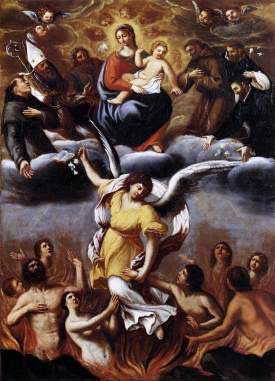 The same fire torments the damned in hell and the just in Purgatory. The least pain in Purgatory exceeds the greatest in this life.” – St. Thomas Aquinas.
The same fire torments the damned in hell and the just in Purgatory. The least pain in Purgatory exceeds the greatest in this life.” – St. Thomas Aquinas.
“My God, what soul would be sufficiently just to enter heaven without passing through the avenging flames’ – St. Teresa of Avila.
‘If we were thoroughly convinced of the torments of Purgatory, could we then so easily forget our parents……. if God would permit them to show themselves we would we would see them cast themselves down at our feet “My children”, they would cry out, “have mercy on us! Oh, do not forsake us!’. – St. John Vianney.
FROM PRIVATE REVELATION
“When I was praying before the Blessed Sacrament on the Feast of Corpus Christi a person enveloped in fire suddenly stood before me. From the pitiable state the soul was in I knew it was in Purgatory and I wept bitterly” – St. Margaret Mary Alacoque.
At FATIMA in 1917 Our Blessed Lady appeared to three children – Lucy, Jacinta and Francesco. The series of appearances by Our Lady to these three children is approved by the Church. Shortly before they took place a young girl from the village had died. She was about fourteen years old. The children asked Our Blessed Mother whether or not she had been saved. The Blessed Virgin advised them that indeed she had been saved but that she would be in Purgatory until the end of the world. (As a result of this revelation many prayers were offered up for her soul and we can only pray that because of this her souls has now been released into eternal glory). From this most authoritative account we can learn three things:
(i) the reality of Purgatory
(ii) great length of time many souls have to stay there
(iii) the tremendous importance of praying for the souls of the departed
Here's some more places you can go if you are still having trouble....
![]() The Burning Truth about Purgatory
The Burning Truth about Purgatory
![]() How to Explain Purgatory to Protestants (James Akin)
How to Explain Purgatory to Protestants (James Akin)
![]() The Roots of Purgatory
The Roots of Purgatory
![]() Purgatory
Purgatory
Tags: baltimore catechism, catechism of the catholic church, catholic, catholic podcast, catholic prayer, cathollc spirituality, Church, Deacon James Keating, doctrine of faith, First Stop, heaven, mystics, poor souls, prayer, purgatory
This entry was posted on Wednesday, November 2nd, 2011 at 12:45 am
You can follow any responses to this entry through the RSS 2.0 feed.
Episode 1 -Communion with Christ – Practical Prayer –The most powerful principal of prayer is that God desires us.  Prayer is a response to a presence who has entered our reality. Distractions, an enemy of prayer. Recovering the prophetic consciousness.  The highest fruit of prayer to be someone who is so transparent to God, that  God reveals His acts in our lives…the person has become prayer.
Prayer is a response to a presence who has entered our reality. Distractions, an enemy of prayer. Recovering the prophetic consciousness.  The highest fruit of prayer to be someone who is so transparent to God, that  God reveals His acts in our lives…the person has become prayer.
[powerpress]
Deacon James Keating, PhD, the director of Theological Formation for the Institute for Priestly Formation, located at Creighton University, in Omaha.
 From the Catechism of the Catholic Church paragraph 2567
From the Catechism of the Catholic Church paragraph 2567
God calls man first. Man may forget his Creator or hide far from his face; he may run after idols or accuse the deity of having abandoned him; yet the living and true God tirelessly calls each person to that mysterious encounter known as prayer. In prayer, the faithful God’s initiative of love always comes first; our own first step is always a response. As God gradually reveals himself and reveals man to himself, prayer appears as a reciprocal call, a covenant drama. Through words and actions, this drama engages the heart. It unfolds throughout the whole history of salvation.
For more information on the “Institute of Priestly Formation†and for other material available by Deacon Keating, just click here
Don’t forget to pickup a copy of “Communion with Christ†, it is one of the best audio sets on prayer…ever!
Check out Deacon Keating’s “Discerning Heart†page
Tags: catechism of the catholic church, catholic, catholic podcast, catholic prayer, cathollc spirituality, Deacon James Keating, Deacon Keating, institute for priestly formation, james keating, old testament, prayer, prophet, theological formation
This entry was posted on Thursday, October 27th, 2011 at 7:18 am
You can follow any responses to this entry through the RSS 2.0 feed.

